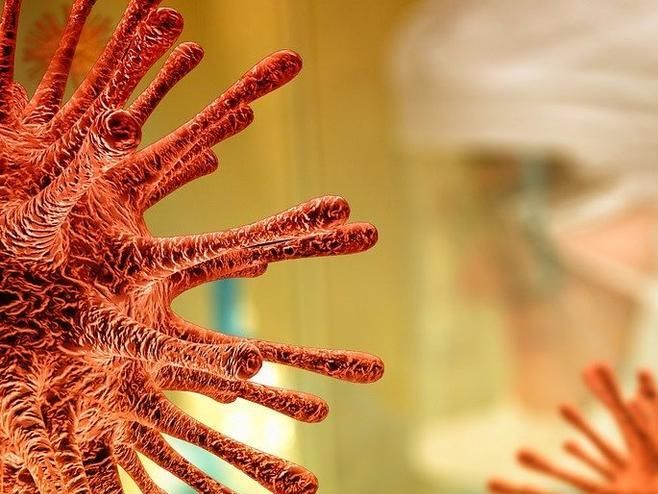Prostate cancer treatment may protect from COVID-19
Even if men did not have prostate cancer could take androgen-deprivation therapies to prevent infection
Advertisement
Androgen-deprivation therapy could protect against infection with SARS-CoV-2 and against severe disease progression. This is suggested by a study led by a professor from the Università della Svizzera Italiana and ETH Zurich.

geralt, pixabay.com, CC0
Male cancer patients have a 1.8-fold increased risk of COVID-19 infection compared to the whole male population and develop a more severe disease. This is found in a study led by Andrea Alimonti, Professor at the Università della Svizzera Italiana (USI) and ETH Zurich, with over 4500 men in the Veneto region, Italy.
Interestingly, however, the study authors found an exception: men treated for prostate cancer with androgen-deprivation therapies (ADT) were less likely to develop COVID-19 and, if they were infected, the disease was less severe.
Why men develop a more aggressive disease
Of over 5200 men with prostate cancer on ADT in the Veneto region, very few developed COVID-19, and none of these patients died of it. Among patients with prostate cancer, the risk of SARS-CoV-2 infection was four times lower when they received ADT.
Research by other scientists has previously shown that a protein called TMPRSS2 helps the pandemic virus to infect human cells. TMPRSS2 levels are elevated in prostate cancer patients, and ADT can decrease these levels. "These interactions could explain why men infected by COVID-19 develop a more aggressive form of disease than women," said Alimonti.
Investigating ADT in studies
Alimonti and his colleagues believe their findings suggest that even if men did not have prostate cancer, those who are at high risk of developing COVID-19 could take ADT for a limited period of time to prevent infection, while those who become infected could take ADT to reduce the severity of the symptoms. "I hope that our findings inspire other clinicians to carry out clinical trials using transient ADT in men infected with COVID-19, in addition to other experimental therapies," says Alimonti.
However, certain limitations of the study need to be taken into account. Cancer patients with COVID-19 may have been tested for the virus more than non-cancer patients, since they are more often in hospital. This could explain the higher prevalence of coronavirus in cancer patients. Prostate cancer patients on ADT may be more careful about social distancing than those not on ADT and patients with other forms of cancer, especially as ADT can be administered at home.
The scientists have published the study in the journal Annals of Oncology. In a press release, the journal's editor-in-chief pointed out that the study does not provide a definitive conclusion about the role of ADT in patients infected with COVID-19, and this class of drugs should not be used for this purpose until prospective trials have confirmed its efficacy.























































